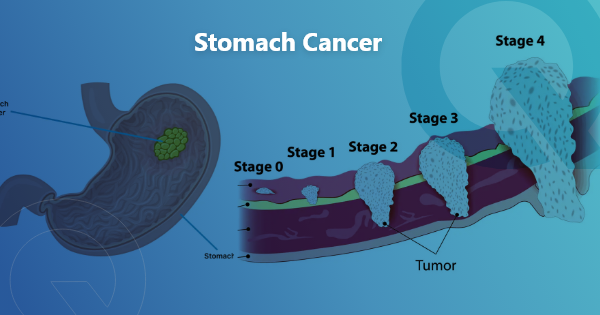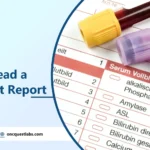~Dr Shivali Ahlawat, Oncquest Laboratories Ltd,
Head- National Reference Laboratory, Gurugram & Head- East & South Regional Labs
Although the incidents of stomach or gastric cancer are steadily declining worldwide, it is still the second-leading cause of cancer-related deaths, with Asian populations showing the highest risk of developing the disease. Furthermore, to sensitise people about this serious disease, November is marked as “Stomach Cancer Awareness Month” every year.
This year 2022, the theme for Stomach Cancer Awareness Month is “Free the Gut”, which focuses on avoiding foods containing sodium nitrite (processed meats, salted and smoked foods) and factors promoting H. pylori infection (unsanitary conditions) which enhance the development of stomach cancer. The primary objective is to raise public awareness and support educational efforts about stomach cancer, including risk factors, prevention, and early detection.
Stomach cancer, also known as gastric cancer, is a malignant tumour that starts in the stomach cells—malignant means that it is cancerous and can spread, or metastasize, to other body parts. Trouble while swallowing, belly pain, weak appetite, indigestion, nausea, vomiting, losing weight without trying, tiredness, and stools that look black are some of the symptoms of gastric cancer.
Types of Stomach Cancer
Adenocarcinoma- It is the most common type of stomach cancer that develops from mucus-producing cells.
Gastrointestinal stromal tumours– GIST is cancerous growths that originate in unique nerve cells that line the stomach and other digestive organs. A kind of soft tissue sarcoma is GIST.
Carcinoid tumours- This type of stomach cancer develops in the body’s neuroendocrine cells, which are present throughout.
Lymphoma- Cancer that begins in immune system cells is called lymphoma. It can sometimes start from the stomach when the body dispatches immune system cells to the stomach.
Tests to Diagnose Stomach Cancer
Visiting a doctor is the first step to getting a diagnosis; they will ask you about any symptoms you may be experiencing and do a physical examination. Using this information, your doctor will decide whether to refer you to a specialist or request lab testing to check for stomach cancer.
Upper endoscopy, which uses a small, illuminated, flexible tube called a gastroscope or endoscope to study stomach cancer inside the body, maybe one of the laboratory tests. The other test is a Biopsy, which involves using specialized testing tools to remove sample tissues.
Also, imaging tests can be used to look for stomach cancer, including CT scans, MRIs, and a special type of X-ray exam called a barium swallow. Furthermore, positron emission tomography (PET) can be done to determine the stage of stomach cancer.
Blood tests measure organ function, revealing whether any organ is at risk of cancer. Apart from these, endoscopy, ultrasound can be conducted to detect stomach cancer and determine how deeply it penetrates the stomach wall.
Last but not least, exploratory surgery may be recommended to check for signs that your cancer has spread beyond your stomach to your chest or abdomen.
Treatment for Stomach Cancer
Stomach cancer is frequently treated with a mix of therapies. Some common stomach cancer treatments include:
Surgery: During surgery, the tumour and some nearby healthy tissue are removed. The type of surgery performed is determined by cancer’s stage.
Radiation therapy: This treatment uses high-energy x-rays or other particles to destroy cancer cells.
Chemotherapy: This therapy uses medications to kill cancer cells, typically by preventing their growth, division, and production of new cancer cells.
Targeted therapy: A treatment that specifically targets the genes, proteins, or tissue environment that support the growth and survival of a cancer cell.
Immunotherapy: Immunotherapy strengthens your immune system’s capacity to attack cancer cells, utilising your body’s natural defences to fight cancer.
Conclusion
Moreover, on this “Stomach Cancer Awareness Month”, people should unite and enlighten more people around us about the need to make minor changes in our lifestyle, diet and sanitary conditions to prevent gastric or stomach cancer.





